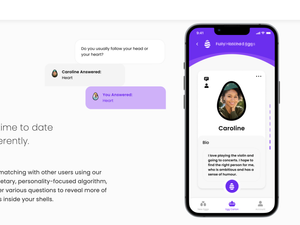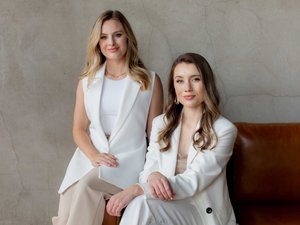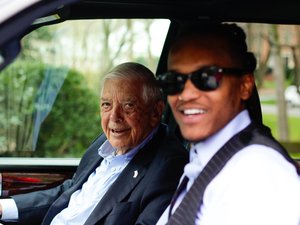
2ULaundry started off as a college company that Alex Smereczniak scaled to be one of Charlotte’s most successful startup businesses.
Smereczniak did his due diligence and managed to get his company through the early stages of profitability. At the recent IDEA Fund Partner Pitch, Smereczniak shared an in-depth conversation in front of a local audience about the successes and occasional shortcomings of his delivery laundry service.
With John Cambier and Lister Delgado of IDEA Fund as panelists and moderators, they talked about 2ULaundry’s business model, competitors, traction, upcoming opportunities, and what made IDEA Fund even consider investing in 2ULaundry in the first place.
Here are some key takeaways and tips:
Investors look from referrals
Many people and things are happening in an area, so investors must be choosey.
Delgado said most investors chose new companies based off of recommendations from the people and companies they already know – and that already know them and what they’re looking for.
In summary, it’s important to make connections within a community.
Know your numbers
One thing that stood out about Smereczniak and 2ULaundry is that every detail is transmittable by numbers, statistics and dollar amounts. Delgado and Cambier said that’s what they look for when they have these types of conversations with founders.
Not everything can be Uber
Smereczniak said the Uber model is not universal. 2ULaundry had to innovate this space and schedule pick ups and drop offs in a way that was streamlined and optimized, or they would’ve never made it.
“Laundry is inherently completely different from ride sharing. It’s completely different from food delivery. That’s a marketplace where everything is point A to point B,” Smereczniak said.
The supply chain for laundry is a little bit more intense, and he said many companies still try to bet on this Uber-model of service when their services are far more complex.
Research and know your consumer
Smereczniak said he found out quickly that millennials weren’t his main consumer like he’d originally thought. He discovered many dual-income households were using his product, which led him to research and discover that the average family of four spends 36 hours a month doing laundry, so he took those statistics and ran with them.
He decided to market to them based around the problem of time – much like the college kids he originally marketed to.
Smereczniak found that his addressable market was usually going to be families from affluent areas making over $100,000/year, who had two working parents and minimal time to do laundry.
He said if he knew his audience and who he was selling to, it makes it that much easier to know and understand his product purpose.
Know your costs
Employees, facility use, Smereczniak said that all of these things add up. They hit a bit of a growth plateau in the past year because they expanded their market to Atlanta and started construction on their own laundry facility at the same time – this meant resource diversion and less profit.
Delgado knows 2ULaundry well and has invested in then since nearly the beginning. He said that it’s okay to not know exactly how much your company plans to raise, but you should always know how much it will cost, and you should always disclose that to investors.
He said that investors in the Southeast are more conservative than elsewhere, and will usually only invest in a company with less than 50% gross margin.
New isn’t always better
Starting a business isn’t always about making something entirely new, it’s about taking an age-old idea or concept and innovating it to fit a new lifestyle.
Smereczniak said that mom-and-pop laundry shops have always had delivery services, but they never innovated them with technology. He seized the gap in that market and still works with the local shops to form partnerships that serve both businesses.








